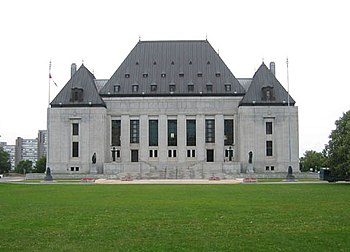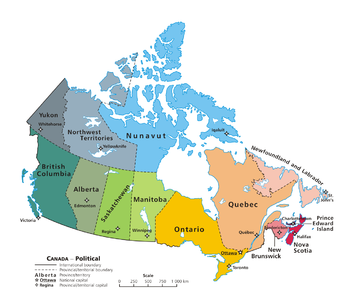With less than one month until the much-anticipated Express Entry selection system for Canadian immigration comes into operation, Citizenship and Immigration Canada (CIC) this week revealed details about its Comprehensive Ranking System. With this information, potential candidates for immigration to Canada now have a clearer picture of how Express Entry will operate.
The Comprehensive Ranking System will rank candidates who have made an expression of interest in immigrating to Canada and are eligible for one of three federal economic immigration programs:
Once a candidate’s eligibility has been confirmed, he or she will enter the Express Entry pool and be ranked against other candidates in the pool. There are up to 1,200 points available under the system, and these are segmented as follows:
- Up to 500 points for the candidate’s core human capital factors, including age, level of education, language ability, and work experience. In the case where the candidate has an accompanying spouse or common-law partner, up to 460 points will be awarded for the core human capital of the principal applicant, with up to 40 points available for the core human capital of his or her spouse or common-law partner. Up to 80 points will be awarded to candidates who have at least one year of Canadian work experience.
- Up to 100 points will be awarded for the skills transferability of the candidate. These points are awarded based on a combination of certain human capital factors.
- 600 points will be awarded for either a qualifying offer of arranged employment from a Canadian employer or a nomination certificate from a Canadian province.
The importance of determining eligibility first
Potential candidates for immigration to Canada through Express Entry should be aware that their score within the Comprehensive Ranking System is only of value once they are eligible to enter the Express Entry pool. Eligibility to enter the pool is determined by a separate assessment that establishes whether a candidate is eligible for one of the federal economic immigration programs listed above.
Once a candidate is eligible, he or she enters the pool and is ranked under the Comprehensive Ranking System with all other eligible candidates for the federal economic programs. Candidates with the highest rankings will then be issued invitations to apply.
To find out if you are eligible for any of over 60 Canadian immigration programs, including the federal economic programs that will be conducted under Express Entry, please fill out a free online assessment today.
Core Human Capital
Of the 1,200 points available under the Comprehensive Ranking System, up to 500 will be awarded for a candidate’s core human capital factors. In the case where the candidate has an accompanying spouse or common-law partner, up to 460 points will be awarded for the core human capital of the principal applicant, with up to 40 points available for the core human capital of his or her spouse or common-law partner.
Points for core human capital of candidates without an accompanying spouse or common-law partner is segmented as follows:
- Age
Up to 110 points are awarded for a candidate’s age, with candidates aged 20 to 29 awarded the full quota. Candidates younger than 18 and older than 44 are not awarded any points.
- Level of education
Up to 150 points are awarded for education.
- First language ability
Up to 136 points are awarded for ability in either English or French, with 34 points awarded for speaking, writing, listening and reading, respectively.
- Second language ability
Up to 24 points are awarded for ability in either English or French, with six points awarded for speaking, writing, listening and reading, respectively.
- Canadian work experience — Up to 80 points are awarded for the number of years a candidate has worked in a skilled occupation in Canada. Use the free Occupation Skill Level Classifier tool to determine the skill level of the job(s) you may have performed.
Points for core human capital of candidates with an accompanying spouse or common-law partner is segmented as follows:
- Age
Up to 100 points are awarded for a candidate’s age, with candidates aged 20 to 29 awarded the full quota. Candidates younger than 18 and older than 44 are not awarded any points.
- Level of education
Up to 140 points are awarded for level of education of the principal candidate, with an additional 10 points available for the level of education of the spouse or common-law partner.
- First language ability
Up to 128 points are awarded for the principal applicant’s ability in either English or French, with 32 points awarded for speaking, writing, listening and reading, respectively. Up to 20 points are awarded for the spouse or common-law partner’s ability in either English or French, with 5 points awarded for speaking, writing, listening and reading, respectively.
- Second language ability
Up to 22 points are awarded for ability in either English or French, with six points awarded for speaking, writing, listening and reading, respectively, with a maximum of 22 points awarded.
- Canadian work experience
Up to 70 points are awarded for the number of years the principal applicant has worked in a skilled occupation in Canada, with 10 additional points available for the number of years the spouse or common-law partner has worked in a skilled occupation in Canada.
Skill Transferability
Of the 1,200 points available under the Comprehensive Ranking System, up to 500 will be awarded for a candidate’s skill transferability. This is measured through five combinations of certain core human capital factors, with a maximum of 50 points available for any one combination. The five combinations are as follows:
- Education and language ability
- Education and Canadian work experience
- Language ability and non-Canadian work experience
- Canadian and non-Canadian work experience
- Certificate of qualification in a trade and language ability
Anticipating and preparing for the Comprehensive Ranking System
“With complete details of the system now in the public domain, candidates are now in a great position to prepare for immigration to Canada through Express Entry,” says Attorney David Cohen. “First, I encourage you to determine your eligibility. If you are not eligible at this time, you can work towards becoming eligible by doing things such as taking or re-taking a language test, or gaining more work experience. If you are eligible, you can begin to gauge how you may rank within the Comprehensive Ranking System and start connecting with Canadian employers to get that all-important job offer. ”
To find out if you are eligible for any of over 60 Canadian immigration programs, including the federal economic programs that will be conducted under Express Entry, please fill out a free online assessment today.
Source: http://www.cicnews.com/2014/12/express-entry-details-comprehensive-ranking-system-announced-124175.html

















